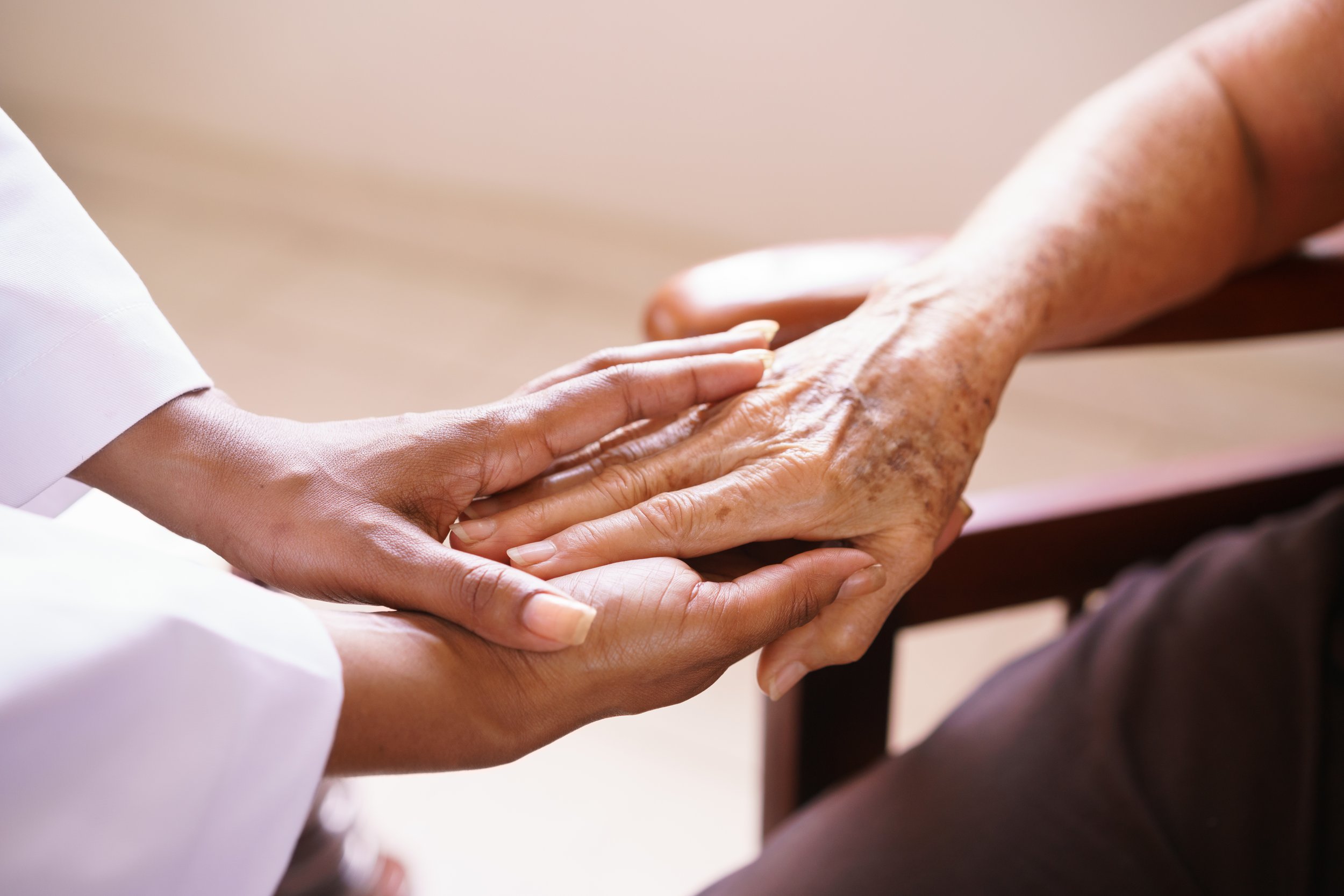
Get to know us
Welcome to YNG, we offer a range of services designed to meet the unique needs of each patient. Let us be a source of comfort and support for you and your loved ones.
Services
*Hospice care (at home)
*In-patient assisted living hospice care
*Hospice interdisciplinary care team
*Personalized care plan by condition
*Emotional & spiritual care
*Family & caregiver support
*Support by medical condition
*What to expect from hospice
*Bereavement & support groups
Testimonial
"YNG provided not only physical comfort for my loved one, but emotional and spiritual support for our entire family during a difficult time. I highly recommend this hospice to anyone in need of end-of-life care for their loved ones."
—Yana F.
Hospice care (at home)
The goal of hospice care is to provide comfort and support to the patient and their family.
What to expect from hospice
Hospice care is a type of end-of-life care that provides comfort, support, and medical treatment to people who are facing a terminal illness and have a life expectancy of six months or less.
Emotional & spiritual care
The goal of emotional and spiritual care is to help individuals and their families find comfort, hope, and peace during a difficult time.
Home services
Home health services are medical and support services provided to individuals in their homes. These services include skilled nursing care, physical therapy, occupational therapy, speech therapy, medical social services, and home health aide services. Home health services aim to help individuals recover from an illness or injury, manage a chronic condition, or maintain their independence at home.
Assisted living care facility
Assisted living is a type of senior housing that provides personal care and support services to older adults who need help with activities of daily living (ADLs), such as bathing, dressing, and medication management. These facilities typically offer a range of services, including meals, housekeeping, transportation, and recreational activities, in a home-like setting. The goal of assisted living is to provide a supportive environment that allows older adults to maintain their independence and dignity while receiving the help they need with ADLs.
Testimonials
-
"My family and I were faced with the difficult decision of finding hospice care for my grandmother, who had been diagnosed with a terminal illness. We were so grateful to have found YNG Hospice. From the moment we walked in the door, we felt a sense of warmth and compassion from the staff. The hospice provided exceptional care for my grandmother, not just medically but also emotionally and spiritually.
Alice C
-
"My husband was diagnosed with a terminal illness and we were in desperate need of hospice care. We were lucky enough to find YNG and we could not have been more pleased with the care they provided. The entire staff, from the nurses to the volunteers, were so kind, compassionate and knowledgeable. They worked closely with my husband and our family to create a care plan that met his specific needs and ensured he was as comfortable as possible.
Emma K
Hospice is a type of healthcare that focuses on providing palliative care and support to people with a terminal illness and their families, typically in the final stages of life.
Hospice care basics.
Hospice care is a type of healthcare that focuses on providing comfort and support to individuals with a terminal illness and their families during the end-of-life journey. Hospice care includes physical, emotional, and spiritual support, symptom management, and bereavement services to help improve the quality of life for both the patient and their loved ones.
When is the time for the hospice?
The appropriate time for hospice care is typically when the patient has a terminal illness and the focus of treatment has shifted from curing the illness to managing symptoms and improving quality of life. This can be determined by a healthcare provider and the patient's family. The goal of hospice is to provide comfort and support for the patient and their loved ones during the end-of-life journey.
Paying for hospice
-
Medicare is a government-sponsored health insurance program designed to provide coverage for people who are 65 years of age or older, as well as those with certain disabilities or chronic health conditions. The program is divided into four parts: A, B, C, and D.
Medicare Part A covers hospital stays, skilled nursing care, and some home health services. It is funded by payroll taxes and is generally available to people who have paid into the Social Security system for at least 10 years.
Medicare Part B covers doctor visits, outpatient care, and some preventative services. It is funded by a combination of premiums paid by beneficiaries and general tax revenue.
Medicare Part C, also known as Medicare Advantage, is an alternative to traditional Medicare that allows beneficiaries to receive their Medicare benefits through a private insurance plan. These plans may offer additional benefits such as dental, vision, and hearing coverage.
Medicare Part D covers prescription drugs, and is also funded by a combination of beneficiary premiums and general tax revenue.
Medicare is an important resource for millions of Americans who rely on the program to access critical health care services. While the program has faced challenges in recent years due to rising costs and changing demographics, it remains a vital lifeline for many seniors and people with disabilities.
-
Medi-Cal is a California state-administered health insurance program that provides coverage for low-income individuals, families, and children, as well as people with disabilities and seniors who meet certain eligibility requirements.
Medi-Cal offers a comprehensive range of medical services, including preventative care, doctor visits, hospitalization, prescription medications, mental health services, and dental and vision care. The program is funded by both federal and state tax dollars, and is available to residents of California regardless of their immigration status.
-
Item description
-
Description text goes here
The process of making decisions and preparing for the care you want to receive near the end of your life. This involves considering your values, goals, and preferences, and communicating them to your loved ones and healthcare providers. End-of-life care planning may include decisions about medical treatment, pain management, advance directives, and funeral arrangements. The goal of end-of-life care planning is to ensure that your end-of-life care aligns with your values and wishes, and to relieve some of the burdens from your loved ones during a difficult time.
End-of-Life Care Planning
*Los Angeles area :
Glendale | Burbank | Westwood | Sherman Oaks | NoHo | Hollywood | Long Beach | Anaheim | Culver City | Gardenia | Tarzana | Wood Hills | Northridge | Port Ranch | North Hills | Reseda | Pasadena | Azusa
We also proudly serve :
San Bernardino | Rancho Cucamonga | Palm Springs | Bakersfield | Lancaster | San Gabriel | Victorville | Palmdale | San Hacindo | Orange County











